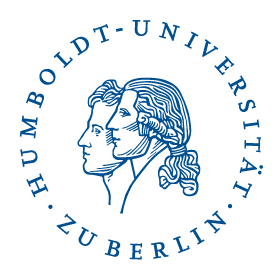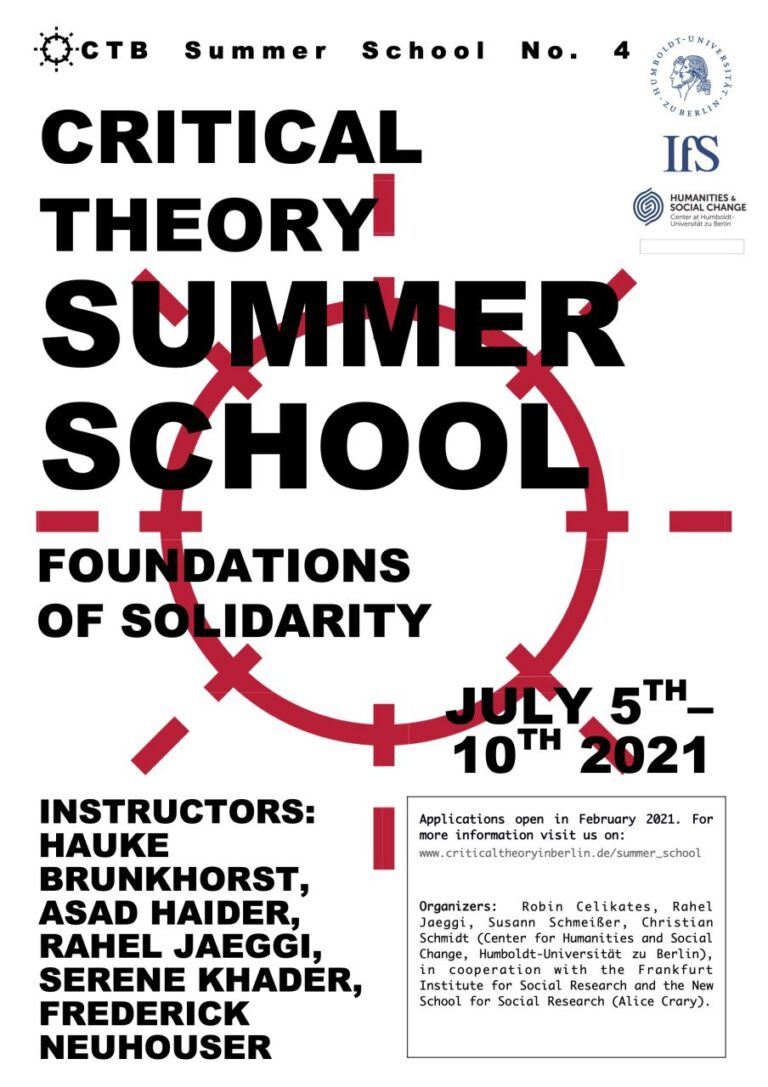Despite a widespread diagnosis that solidarity is in crisis, appeals to solidarity are ubiquitous today. We encounter them on the level of personal and professional relations but also with regard to institutions and systems of social security and welfare. They gain a dramatic character when human lives are in danger, e.g. when refugees have to cross the Mediterranean in floating death traps or when climate change is devastating the livelihood of whole populations. In all these cases, appeals to solidarity are invoking a ‘we’: We, the family or friends; we, the co-workers or professionals of our branch; we, the members of a national community or a social collective; we, leftists or members of a political movement; we, human beings; …
How can the materialist foundations of actual solidarity be rethought without falling back into tacit assumptions of social homogeneity? Class, gender, race, nation, and even humanity have all lost their status as matters of course. Given the effects of sexism and racism, theories of solidarity have to take into account the complex contradictions of capitalist societies which divide subaltern and exploited groups on the domestic level as well as globally. Appeals to solidarity hence run into an uncertainty concerning the foundations of solidarity. Is solidarity the result of a shared form of life or of collective practices? Does it stem from similar experiences or a common situation? Is it marked by adversity or a common enemy? Or is it the effect of a shared devotion to a common cause?
The summer school will involve plenary lectures and discussions, reading sessions, smaller group discussions and panel debates. Only the latter will be open to the broader public. We will explore classical approaches such as Émile Durkheim’s analysis of the modern division of labour, Karl Marx’s claim the proletariat is a universal class that will found society on new relations of solidarity, and Iris Marion Young’s concept of seriality. Besides such classics, we will discuss with leading contemporary theorists of solidarity (several of which will be present as instructors) whether or not current approaches of solidarity open up new perspectives for universalism.
To apply for participation, graduate students and junior scholars are invited to submit a precis of their take on core issues in the debate on solidarity and a CV (each document 1 page max.). The precis should show which particular background knowledge and systematic positions the applicants would contribute to our joint discussions.
Deadline for applications: March 1st, 2020, by e-mail to: CTsummerschool@hu-berlin.de
There is a fee of 300,-€ for the Summer School and participants have to fund their own travel, accommodation and catering. In exceptional cases, participants can be exempted from the fee. Please check our FAQs for further information.
Instructors:
Hauke Brunkhorst (Europa-Universität Flensburg)
Robin Celikates (Freie Universität Berlin)
Asad Haider (New School for Social Research)
Rahel Jaeggi (Humboldt-Universität zu Berlin)
Serene Khader (City University of New York)
Regina Kreide (Universität Gießen)
Andreas Malm (Lund University)
Frederick Neuhouser (Columbia University)
Lea-Riccarda Prix (Humboldt-Universität zu Berlin)
Christian Schmidt (Humboldt-Universität zu Berlin)
Lea Ypi (London School of Economics and Political Science)
Organizers: Robin Celikates, Rahel Jaeggi, Susann Schmeißer,
Christian Schmidt (Center for Humanities and Social Change,
Humboldt-Universität zu Berlin), in cooperation with the
Frankfurt Institute for Social Research and the New School for
Social Research (Alice Crary).







